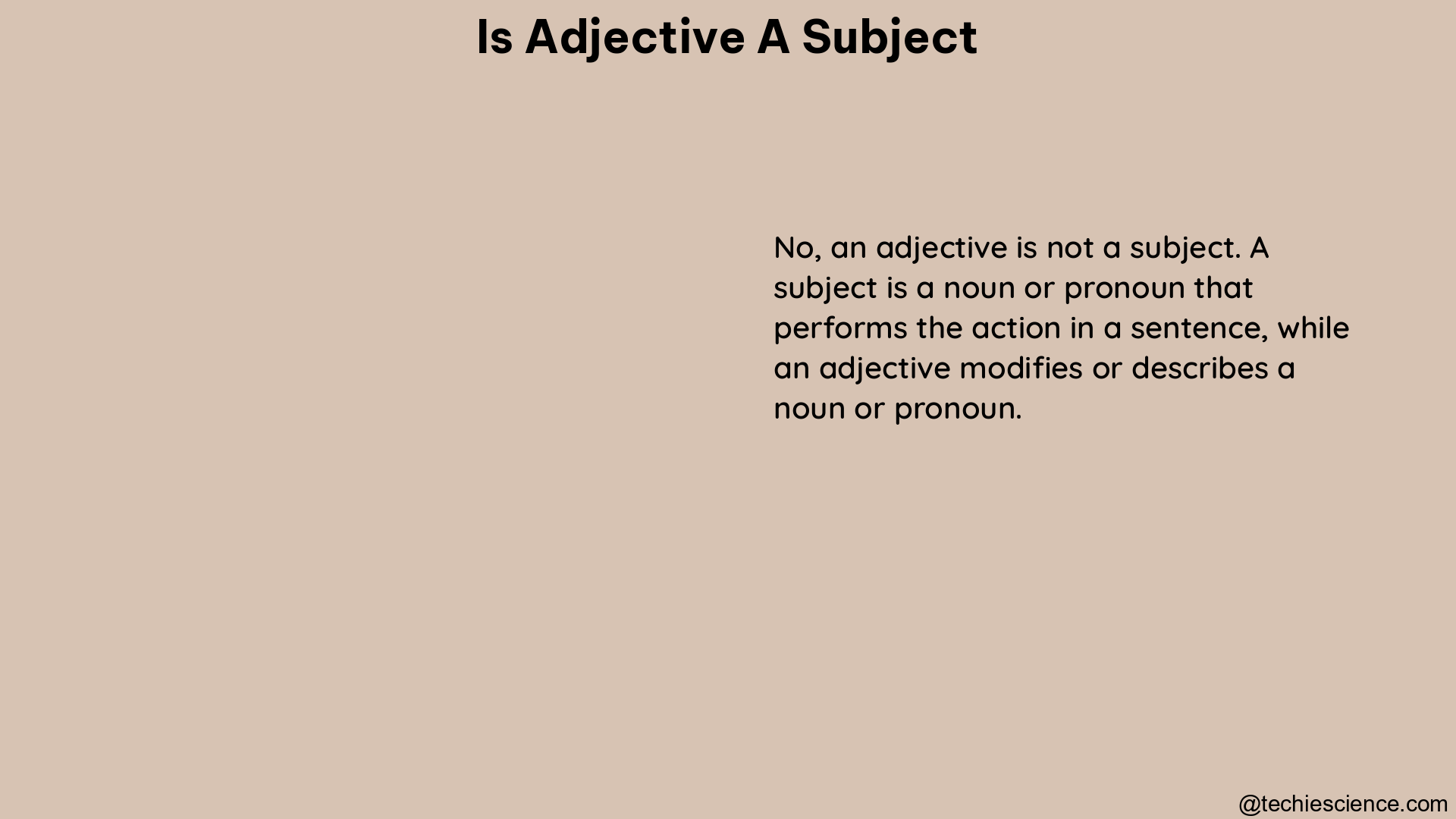Adjectives Within Noun Phrases
Adjectives can be part of a noun phrase, which can serve as the subject of a sentence. However, this does not mean that the adjective itself is the subject. For instance, in the sentence “The red book looks difficult,” “red” is an adjective modifying the noun “book,” which is the actual subject.
Noun phrases can be complex, consisting of multiple adjectives and other modifiers. Consider the following example:
“The large, antique wooden table in the corner is sturdy.”
In this sentence, the subject is the noun phrase “The large, antique wooden table in the corner,” where “large,” “antique,” and “wooden” are adjectives modifying the noun “table.”
Adjectives as Nouns

In certain contexts, adjectives can function as nouns, making them eligible to be subjects. This occurs when an adjective is used to describe a concept or a category rather than a specific noun. For example, in the sentence “Poor is what we were; rich is what we wished to be,” “poor” and “rich” are used as nouns, making them subjects.
This phenomenon is known as “substantivization” or “nominalization” of adjectives. Some common examples include:
- “The poor need more support.”
- “The young and the old have different needs.”
- “The beautiful often receive more attention.”
In these cases, the adjectives “poor,” “young,” “old,” and “beautiful” are functioning as nouns, allowing them to serve as subjects.
Adjective Phrases as Subjects
Adjective phrases can also serve as subjects in specific constructions, such as the “specifying be” where the subject expresses the value of a variable. Examples include:
- “Ugly is what I’d call it.”
- “Angry is how I felt.”
- “Difficult is the task at hand.”
In these sentences, the adjective phrases “Ugly,” “Angry,” and “Difficult” are the subjects of the respective clauses.
Fused Modifier-Head
In some cases, an adjective can act as the head of a noun phrase, making it the subject. This is known as a “fused modifier-head.” For instance, in the sentence “The tallest stands in Dubai,” “tallest” is an adjective acting as the head of the noun phrase “the tallest,” which is the subject.
Other examples of fused modifier-head constructions include:
- “The wealthy donate more to charity.”
- “The elderly require more medical attention.”
- “The young are often more energetic.”
In these examples, the adjectives “wealthy,” “elderly,” and “young” are functioning as the heads of the respective noun phrases, making them the subjects.
Conclusion
In conclusion, while adjectives cannot typically function as subjects on their own, they can be part of a noun phrase that serves as a subject or, in specific contexts, function as nouns or heads of noun phrases, thereby becoming subjects. Understanding the nuances of how adjectives can be used in sentence structure is crucial for mastering advanced English grammar.
References
- https://www.reddit.com/r/grammar/comments/esdakh/can_an_adjective_and_adverb_function_as_the/
- https://josecarilloforum.com/forum/index.php?topic=8051.0
- https://ell.stackexchange.com/questions/330365/can-an-adjective-be-a-subject
- https://english.stackexchange.com/questions/614978/word-order-can-an-adjective-be-a-subject-in-an-english-sentence
Hi… I am Sowndharya Jagadeeswaran, a university rank holder in M.A. English Literature. I have also done my master’s in Business Administration. Inquisitive as I am, my interest in action-oriented research helped me publish research papers in reputed journals. Now, as a career, I am an instructor where I teach young and adorable students the intricate technicalities of Public Speaking and Creative Writing. I also enjoy writing articles on topics I specialize and research in.
You can connect with me through LinkedIn.-